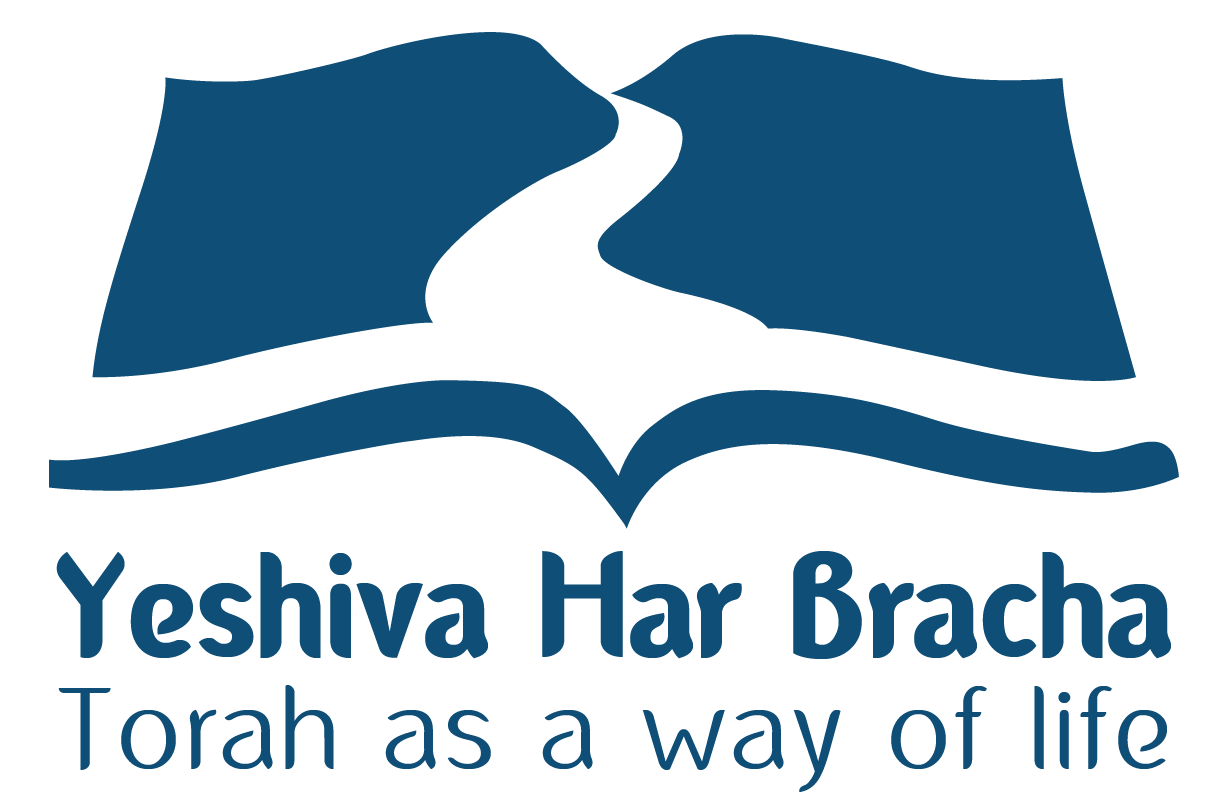The Redemption of Israel—that is, the ‘Ingathering of the Exiles’ and the ‘Settlement of the Land’—must occur through natural means ● The intention of the Torah is that God will assist Israel in fulfilling this commandment ● Without God’s help, no human effort will bear fruit ● Due to the abundance of discourse about a miraculous redemption, the commandment to do everything possible to ascend to the Land and settle it, has been forgotten ● The process of redemption will unfold in such a way that initially, Israel will return to their Jewish identity, ascend to the Land, and settle it
The redemption of Israel, that is, the ‘Ingathering of the Exiles’ and the ‘Settlement of the Land’, must occur through natural means. For the commandment of ascending to the Land and settling it is a practical mitzvah incumbent upon the entire nation of Israel and upon each individual, and it is fulfilled when the Land of Israel is inhabited by Jews under Jewish sovereignty (see Peninei Halakha: Ha’Am Ve’HaAretz 3:1–3). It follows that the sin causing the delay of redemption is the national negligence in organizing the Ingathering of the Exiles and the Settlement of the Land, and the negligence of each individual Jew in ascending to the Land, and settling it.
Similarly, we find in the second redemption, in the days of the return from Babylon and the establishment of the Second Temple, that most Jews did not ascend to the Land. Therefore, the people of Israel did not succeed in achieving sovereignty over the Land, the Divine Presence did not dwell in the Temple, and we were not obligated in tithes, terumot, and the sabbatical year from the Torah (see Peninei Halakha: Kashrut 12:11). Therefore, the Sage, Reish Lakish, said that he hated the Babylonians who did not ascend to the Land in the days of Ezra, because due to them the Divine Presence in the Temple was partial, the settlement in the Land was weak, and ultimately, the Second Temple was destroyed, and Israel went into a long exile (Yoma 9b).
Those Who Claim That Redemption Must Occur Miraculously
Some claim that, indeed, the essence of redemption is the ‘Ingathering of the Exiles’ and the ‘Settlement of the Land,’ but these must come from God through signs and wonders. And so they learned from the plain meaning of the verses, that God will gather the exiles and settle the Land, as it is said:
“Then the Lord your God will restore your fortunes and have compassion on you, and He will return and gather you from all the peoples where the Lord your God has scattered you. Even if your exiles are at the ends of the heavens, from there the Lord your God will gather you, and from there He will take you. And the Lord your God will bring you into the Land that your fathers possessed, and you shall possess it; and He will make you more prosperous and numerous than your fathers” (Deuteronomy 30:3–5).
And it is also said:
“I will take you from among the nations and gather you from all the countries and bring you into your own land” (Ezekiel 36:24), and similarly in other verses in the Torah and the Prophets.
The Intention of the Torah Is That God Will Help through Natural Means
However, the intention of the Torah is that God will help Israel to fulfill the commandment, for without God’s help no human effort will bear fruit. And if we do not explain it thus, God forbid, we would nullify the commandment that God commanded Israel to settle the Land, as it is said: “You shall dispossess the inhabitants of the Land and dwell in it, for I have given you the Land to possess it. And you shall inherit the Land” (Numbers 33:53–54). And it is said: “You shall possess it, and dwell in it” (Deuteronomy 11:31).
Sanctification of God’s Name through Natural Means and Through Miracles
Some claim that if the redemption occurs through natural means, there will be no sanctification of God’s name, because only through signs and wonders will His name be sanctified. However, the truth is that the greatest sanctification of God’s name is when the children of Israel walk in God’s ways, and God blesses the work of their hands through natural means, as explained in the Torah (in the portions of Bechukotai and Ki Tavo). For then, heaven and earth are connected, and God’s blessing flows in everything, and all creation sings praise, and it is revealed that “the Lord is God in heaven above, and on the earth below; there is no other” (Deuteronomy 4:39). And as Rabbi David Tabil wrote, that when God governs the world in a hidden manner under the wings of nature, “this is the highest form of governance… by sending blessing in the work of their hands… as was the case in the wars of David,” and this was a greater sanctification of God’s name than the miracle that God performed for Hezekiah in his war against Sennacherib. Therefore, King David, of blessed memory, did not ask God to perform a miracle for him. “For King David, of blessed memory, estimated in his soul that he was ready and prepared to be a chariot for receiving the divine abundance, even in his physical structures, his arteries, and his material sinews… and the desire was that he himself would strike them, and this is the greatest of the levels” (Nachalat David, Discourse 1).
The Meaning of the Description of Redemption through Miracles
Two interpretations have been given for the fact that the prophets described the redemption through miraculous means (Isaiah 11:1–10; 30:25–26; Ezekiel 38:18–23, and others), and both are true. The first is to explain that God will help Israel succeed in ascending to the Land and settling it. And the miraculous aspect of the descriptions is expressed in metaphorical language, to describe the great wonder of the ‘Ingathering of the Exiles’ and the ‘Settlement of the Land’ that was desolate and ruined and will become blooming and prosperous, something that has not happened to any nation or land. And what is said that the wolf will dwell with the lamb, means that the wicked of the world, who are likened to wolves, will not do evil to kill (Rambam, Hilchot Melachim 12:1).
The second is that the miraculous descriptions were said about the World to Come, which is after the days of the Messiah and the redemption, which is indeed beyond the nature of this world, and entirely miraculous for us. This is what our Sages said: “There is no difference between this world and the days of the Messiah except for the subjugation to kingdoms alone” (Sanhedrin 99a), meaning, that even in the days of redemption, the world operates as usual, except that Israel is free in their Land and can choose the good, and only afterward, in the World to Come, nature will be perfected and elevated.
The Encouragement, and the Risk
Indeed, at times we find in the words of early and later authorities who wrote about the imminent redemption that it would occur through miraculous means, contrary to the commandment of Settling the Land, which, as we have learned, is a practical mitzvah that must be fulfilled through natural means, and contrary to the destiny of Israel to reveal God’s word through natural means. And perhaps they feared that Israel would despair of their redemption, after it seemed that there was no chance to act for the ‘Ingathering of the Exiles’ and the ‘Settlement of the Land,’ and therefore, they encouraged their spirits with the hope of a miraculous redemption, beyond nature. And there is truth in this, because even when redemption comes through suffering and natural means, there is an aspect of a miracle that is unbelievable. However, due to excessive talk about miraculous redemption, the commandment to do everything possible to ascend to the Land and settle it was forgotten, and thus, when it was possible to ascend to the Land, they remained in exile, and great and terrible troubles came upon us: the Holocaust, the rule of the evil communist regime, and assimilation. Perhaps there was no choice, and without the hope of a miracle, we would not have survived, but the price of relying on the miracle was unbearably heavy.
Indeed, had they studied the Torah properly, they would have understood that the commandment of Settling the Land obligates Israel in every generation to do everything possible to ascend to the Land, and consequently, in modern times, when suitable conditions were created, according to the Torah, it was necessary to ascend to the Land and build it, thereby advancing the process of Israel’s redemption.
The Words of the Rambam
And so we find that many of the Sages of Israel, headed by Rabbi Akiva, hoped that Bar Kokhba would be the Messiah, and if redemption depended on miracles, it would not have been conceivable that Bar Kokhba would be the Messiah, for all his actions for the independence of Israel were through natural means. And so the Rambam wrote:
“Do not think that the King Messiah must perform signs and wonders, or bring about new things in the world, or resurrect the dead, and similar things that the fools say. It is not so. For Rabbi Akiva, a great sage of the Mishnah, was the arms-bearer of King Koziba, and he would say about him that he is the King Messiah, and he and all the sages of his generation thought that he was the King Messiah, until he was killed due to sins. Once he was killed, it became known that he was not the Messiah. And the sages did not ask him for a sign or a wonder” (Hilchot Melachim 11:3).
The Words of the Later Authorities
And so wrote Rabbi Tzvi Hirsch Kalischer in his book Derishat Tzion:
“The redemption of Israel, which we await, let no one think that suddenly the Lord, blessed be His name, will descend from heaven to earth, saying to His people, ‘Go out!’ Or that He will immediately send His Messiah from the heavens to blow a great shofar for the dispersed of Israel, and gather them to Jerusalem, and make for her a wall of fire and a Temple descending from above” (Geulat Tzion, Essay 1). Rather, the redemption will come by Israel awakening to ascend to the Land and settle it, and from this, all the words of the prophets will be fulfilled in us.
And so wrote his colleague Rabbi Eliyahu Gutmacher:
“Many err in thinking that they will sit… each according to his way in his home, and suddenly the gates of mercy will open, miracles will be performed in the heavens and the earth, and all the prophecies of the prophets will be fulfilled, and they will be called from their place of residence. But it is not so,” rather, they will need to act naturally to ascend and settle the Land (Shivat Tzion, pp. 260-261 in the Har Bracha edition).
And so wrote many, among them the Malbim:
“For the redemption will sprout gradually… and the settlement of the Land of Israel will precede the coming of the Messiah” (ibid., p. 196).
And so wrote Rabbi Yehoshua of Kutna that it is a commandment to ascend to the Land, and settle it,
“…for the Ingathering (of exiles) is the beginning of redemption” (Yeshuot Malko, Yoreh De’ah 66). And so wrote the Netziv (ibid., pp. 200-205).
The Process of Repentance and Redemption
From examining the words of the Torah (Deuteronomy 30:1-10), and the prophets (Ezekiel chapter 36), we have learned that the process of redemption will occur in such a way that initially Israel will return to their Jewish identity, ascend to the Land and settle it, and this is called “and you will return to (‘ad’ in Hebrew, lit. ‘up until’) the Lord your God,” and not “to” completely, and from this, they will continue to progress until they return in complete repentance “to the Lord your God.” So wrote and taught Rabbi Tzvi Yehuda HaKohen Kook ztz”l (‘The State as the Fulfillment of the Vision of Redemption,’ LeNetivot Yisrael Part 1, p. 281 in the Beit El edition). And so wrote before him Rabbi Alkalai in the name of Rabbi Yehuda Bibas (Writings of Rabbi Yehuda Alkalai Part 1, p. 20, Part 2, p. 324). And so wrote Rabbi Teichtal in the book ‘Eim HaBanim Semeicha’ (pp. 109-120), based on many sources, “that the essence of repentance (in the first stage of redemption) is the return and restoration to the Land of Israel, thus fulfilling all those who have deviated from the ways of the Torah and commandments due to our many sins, the repentance that the Lord, blessed be He, expects… and afterwards the Holy One, blessed be He, will open their hearts with a great opening, and incline their hearts to love Him, and serve Him with all their heart.”
In the Merit of Those Engaged in the Commandment of Settling the Land, We Merit Redemption
Rabbi Kook wrote: “They ask: What merit did our generation have for redemption? The answer is simple: it merited because it engaged in the greatest commandment of all the commandments, in the commandment equivalent to the entire Torah, because it engaged in the redemption of Israel. And not only did it engage, but it engages, and will engage incessantly, in its redemption, and this divine power elevates and exalts it in salvation” (Shmona Kevatzim 7:201).
This article appears in the ‘Besheva’ newspaper and was translated from Hebrew.








